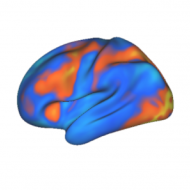Hippocampus is involved in feature binding for novel stimuli (McClelland, McNaughton, & O'Reilly – 1995, Knight – 1996, Hasselmo – 2001, Ranganath & D'Esposito – 2001)
It was demonstrated by McClelland et al.that, based on its role in episodic memory encoding, hippocampus can learn fast arbitrary association.
This was in contrast to neocortex, which they showed learns slowly in order to develop better generalizations (knowledge not tied to a single episode). This theory was able to explain why patient H.M. knew (for example) about JFK's assassination even though he lost his hippocampus in the 1950s.
Robert Knight provided evidence for a special place for novelty in hippocampal function by showing a different electrical response to novel stimuli in patients with hippocampal damage.
These two findings together suggested that the hippocampus may be important for binding the features of novel stimuli, even over short periods.
This was finally verified by Hasselmo et al. and Ranganath & D'Esposito in 2001. They used functional MRI to show that a portion of the hippocampal formation is more active during working memory delays when novel stimuli are used.
This suggests that hippocampus is not just important for long term memory. Instead, it is important for short term memory and perhaps novel perceptual binding in general.
Some recent evidence suggests that hippocampus may be important for imagining the future, possibly because binding of novel features is necessary to create a world that does not yet exist (for review see Schacter et al. 2007).
-MC

Binding
I think it’s important to distinguish between the type of binding that may occur in the hippocampus and the binding involved in, say, recognizing a novel configural stimulus (e.g., a word or face) in order to take an action. Although these two types of “binding” may use similar computation or at least yield similar results, it may be misleading to use one term for both processes. I think that when most people say “binding”, they are referring to the latter process.
Certainly, it seems as though the hippocampus is *able* to bind features, but can’t people with hippocampal damage still bind, perceive, and make decisions on complex configural stimuli?
What about Hippocampal Consolidation?
In the studies you cited above, the increased activation of the hippocampus for novel objects during the working memory delays could simply reflect the fact that novel objects are ones that have yet to be learned, i.e., have not yet been consolidated. As per hippocampal consolidation theory, a working-memory delay period in an experiment is an acceptable time to engage consolidation because there are no incoming sensory stimuli.
The notion that the hippocampus can represent and learn about combinations of stimuli (or possibly features) has been around since the 80s and possibly earlier. For example, it is believed that the place cells that are evident in the hippocampus are likely a result of “binding” of the various stimuli that happen to be visible, audible, smellable, and touchable from a particular location in space. This function is important because unlike birds, mammals do not have a bird’s-eye view for distant cues which may be their targets. In particular, it has been speculated that the hippocampus developed in mammals in order to provide them not only with the place-cell capability but also the capability to learn sequences these combinations.
To support the idea that the hippocampus is truly important for "binding" as typically defined, I think one would need to interfere with the hippocampal activity and disrupt binding, or demonstrate that the amount of hippocampal activity correlates with performance on some task that depends on the binding. Neither of these have been shown, to my knowledge.
-PL
@PL
I agree that the terms are somewhat confusing.
However, I disagree that the fMRI signal in hippocampus during working memory delays could be due to consolidation. The signals increase for the more demanding condition with novel stimuli. Your hypothesis would predict that fMRI signals should increase in hippocampus during the less demanding task. Also, these signals are being compared to resting baseline, which should involve the highest consolidation signal it seems.
The findings clearly show that hippocampus is essential for binding novel sets of features for manipulation within working memory. More and more evidence is accumulating showing that humans with hippocampal lesions show impaired working memory performance with novel stimuli. This has already been shown repeatedly with nonhuman primates.
@PL
Actually, I just read your comment again. I think I misunderstood what you’re saying about consolidation.
I think your hypothesis is interesting. I’m not sure how one would be able to distinguish between your hypothesis and the current theory with fMRI.
The human lesion data seems to support the current theory.
Of course, it’s also possible HM helped plan the assassination.